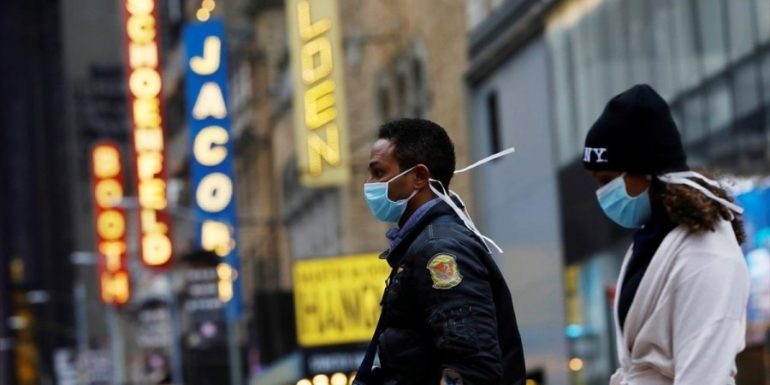From England to Denmark, many European countries are easing restrictions against Covid. This trend divides experts, whose disagreements highlight uncertainties about the immediate and distant future of the pandemic.
"Farewell to the restrictions and welcome to life as we knew it before the virus," said Mete Frederiksen, the Danish prime minister.
Her country lifted most of the restrictions on Tuesday, such as a health certificate and the mandatory use of a mask. Authorities believe the Omicron variant, much more contagious than its predecessors, poses a limited health threat.
Yesterday Thursday, it was England's turn to lift most of the restrictions that were in place and were already milder than the European average: indoor public mask and vaccination pass for big events.
This trend is in contrast to other countries such as France, which, despite a slight easing of the restrictive program next week, does not envisage the abolition of the vaccination certificate.
Which countries make the best choice? The answer has not been given, because the lifting of restrictive measures causes disagreements among experts in terms of pace and time.
What about sub-variant BA.2?
As soon as it was announced last week that the lifting of restrictions by Prime Minister Boris Johnson provoked reactions among experts.
Some experts generally support the government's decision, which points out that Omicron has caused an astronomical number of cases and has not caused a flood of Intensive Care Units: either because they are less contagious or because the population is better protected by the vaccine.
"On an epidemiological level, the United Kingdom has never been in such a favorable position since the beginning of the pandemic," say some epidemiologists. Other colleagues disagree with the very hasty abandonment of the restrictive measures and express concern.
At the moment, even less infectious, Omicron is burdening hospitals a lot. The number of deaths associated with Covid is rising in Denmark, while in England it has flattened, after stopping its downward trend.
The most pessimistic are worried about the effects of Omicron sub-variant BA.2, which appears even more contagious.
The high circulation of the virus threatens with serious disease the most vulnerable categories: the unvaccinated, the immunosuppressed, the very elderly…
"If we do not have enough patience to take control of the current epidemic, we will leave a significant minority, perhaps millions of people," warns virologist Stephen Griffin.
Differences from country to country
These dichotomies, however, hide some more moderate positions. Instead of judging the relaxation of the measures as a whole, distinctions can be made between countries.
Denmark made its decision based on three criteria: the fact that Omicron is less contagious, the high rate of vaccination of the population and the fact that hospitals still have room to withstand the shock.
The first two criteria apply to almost all Western European countries, but the third may depend on the state of each local health system. Denmark, for example, has shown that it has more capacity to manage the health crisis than the United Kingdom.
In the long run, some experts fear the over-optimism of governments that form the idea that Covid is finally under control.
It's a dangerous bet, given the uncertainties surrounding the emergence of new, perhaps more serious, variants.
This prospect, which threatens to rekindle the epidemic, is being fueled by the widespread circulation of the virus, prompting some scientists to worry about the consequences of over-loosening restrictions.
But "whether or not to lift the measures does not change things, because their effectiveness in transmitting transmission is currently very small compared to a variant like Omicron," says Antoine Flahaut, an epidemiologist at the Institute of Global Health at his medical school. University of Geneva considering that it is preferable to focus efforts on ventilating indoor areas to prevent the spread of the virus.
Source: RES-EAP
